A system called a blockchain is emerging as a solution to help people get paid faster for their products or services no matter how far they are apart.
Let's introduce Adam, an exclusive Applion (apple cross-bred with onion) farmer whose products are highly in demand. No, unfortunately, not in his own country. It's a cluster of elite chefs across the globe that wants it. Now that he looks forward to selling his unique product globally, he has to be pitted against our conventional banking cross-border payment system, which is taking too long.
Until someday, a disturbance called blockchain appeared. In comparison with traditional cross-border payments like wire transfers that could take 3-5 business days, blockchain transfers could only take seconds.
So, what is Blockchain, and how does it work exactly?
How Does Blockchain Work?
Blockchain, known generally as Distributed Ledger Technology (DLT), is a fast, non-decentralized, publicly accessible ledger to track where and by whom each and existing transaction takes place. From the first transaction to the last bit of Adam's Applion!
When money is transferred between banks, each institution needs to engage in a labor-intensive ledger reconciliation process to confirm that the correct sums have been processed. A blockchain system could allow banks to cut middle-skill administrative labor by eliminating the need for such a process.
All that while promising a secure mechanism that made tampering with the data a near-impossibility because every ledger affiliated within the trade will be synced before you can say.
Comparison of Speed: Wire Transfers and Blockchain
Blockchain can transform wire transfers by offering faster, more secure, and cost-effective transactions. With its decentralized nature, Blockchain promotes financial inclusion and reduces reliance on traditional banking systems. It eliminates intermediaries, ensures transparency, and enables automation through smart contracts.
The speed of wire transfers and blockchain transactions can differ significantly due to various factors involved in each method. Here is a general overview of the speed comparison between wire transfers and blockchain transactions:
Wire Transfers
Wire payments involve the transfer of funds between different countries using traditional banking systems and payment networks. The speed of wire transfers can vary depending on the participating banks, the payment network used, the countries involved, and regulatory requirements. It typically takes several business days for wire transfers to be processed and settled, with additional time required for currency conversion and intermediary bank processes.
For example, a wire transfer from the United States to the United Kingdom may take up to 3 business days to be processed and settled. This is because the payment must first be sent from the sender's bank to the intermediary bank in the United States, which then sends it to the intermediary bank in the United Kingdom and finally to the recipient's bank. In addition, the payment must be converted from US dollars to British pounds, which can take additional time.
Blockchain
Blockchain technology, used in cryptocurrencies like Bitcoin and Ethereum, offers the potential for faster wire transactions. Blockchain enables direct peer-to-peer transfers without intermediaries, resulting in quicker processing times. Blockchain transactions can generally be completed within minutes or seconds, making them significantly faster than traditional wire transfers. The speed of blockchain transactions depends on factors such as the specific blockchain network, the congestion level of the network, and the consensus algorithm used.
For example, a blockchain-based Ripple network payment can be completed in just a few seconds. This is because the payment is sent directly from the sender's wallet to the recipient's wallet without intermediaries.
It's important to note that while blockchain transactions have the potential for faster speeds, other factors like network congestion and transaction fees can impact the overall transaction time. Additionally, financial institutions and regulatory frameworks' adoption and integration of blockchain technology play a role in realizing its full-speed potential for cross-border payments.
As technology continues to evolve, blockchain-based solutions are being explored to enhance the speed and efficiency of wire transactions. This includes initiatives like stablecoins and Central Bank Digital Currencies (CBDCs), which aim to leverage blockchain technology for faster and more seamless wire transfers.
Blockchain Can Be Adopted into Several Life Aspects
Blockchain technology has emerged as a transformative force with many real-life applications across diverse industries. Here are some compelling examples:
- Cryptocurrencies: Blockchain's breakthrough application, cryptocurrencies, offers secure, decentralized digital transactions, eliminating the need for intermediaries like banks and revolutionizing the financial landscape.
- Supply Chain Management: Blockchain enables enhanced transparency and traceability in supply chains. It empowers businesses to track the entire journey of goods, verify authenticity, and record crucial details like origin, certifications, and handling conditions. This combats fraud and counterfeiting and improves overall efficiency.
- Financial Services Transformation: The financial sector is being reshaped by Blockchain, delivering faster, more secure, and cost-effective transactions. Cross-border payments become more streamlined, remittances more efficient, and complex processes like securities trading and settlements are simplified.
- Healthcare Revolution: Blockchain securely stores and shares patient health records, ensuring privacy and accessibility across healthcare providers. This fosters accurate data exchange, streamlines medical research efforts, and empowers patients to have greater control over their health information.
- Identity Verification Reinvention: Blockchain offers a robust solution for digital identity management, providing a secure and tamper-proof means to verify and authenticate individuals. This technology has promising implications for voting systems, government services, and Know Your Customer (KYC) processes, fostering trust and security.
- Intellectual Property Safeguarding: Blockchain helps protect intellectual property rights by offering a decentralized and immutable record of ownership and transactions. It can be utilized for copyright protection, patent registration, and royalty management, ensuring fair compensation for creators.
- Renewable Energy Trading: Blockchain facilitates peer-to-peer energy trading, empowering individuals and businesses to buy and sell energy directly. This reduces reliance on traditional utility companies, fosters transparency, and drives the adoption of renewable energy sources.
- Decentralized Applications (DApps) Advancement: Blockchain enables the development of decentralized applications that operate on peer-to-peer networks. These innovative DApps span diverse domains, such as decentralized finance (DeFi) platforms, decentralized marketplaces, social networks, and gaming platforms.
These examples represent just a glimpse into the vast potential of blockchain technology. As this technology matures and industries increasingly recognize its benefits, we anticipate witnessing further innovation and widespread adoption of blockchain-based solutions across multiple sectors.
Pros and Cons of Blockchain Technology
Blockchain technology offers numerous advantages, but it also has certain limitations and challenges. Here are some key pros and cons of Blockchain.
Pros:
- Transparency and Immutability: Blockchain provides a transparent and tamper-proof ledger where transactions are recorded chronologically and irreversibly. This transparency enhances trust among participants and reduces the potential for fraud or manipulation.
- Security: Blockchain uses advanced cryptographic techniques to secure transactions and data. It eliminates the need for a central authority or intermediary, making it more resistant to hacking or unauthorized access. The decentralized nature of Blockchain also makes it less vulnerable to single points of failure.
- Efficiency and Cost Savings: Blockchain has the potential to streamline and automate processes by removing intermediaries and reducing manual paperwork. This can increase efficiency, faster transaction settlement times, and cost savings by eliminating intermediaries' fees.
- Decentralization and Peer-to-Peer Networks: Blockchain operates on a peer-to-peer network, allowing direct transactions between participants without intermediaries. This decentralization can increase inclusivity, promote financial access, and empower individuals by giving them more control over their assets.
- Traceability and Auditability: Blockchain enables tracking the provenance and history of assets, goods, or data throughout their lifecycle. This traceability feature is precious in supply chain management, where it can help identify inefficiencies, prevent counterfeit products, and ensure compliance with regulations.
Cons:
- Scalability: Blockchain faces challenges in scaling to handle large transactions. As more transactions are added to the Blockchain, the network can become slower, and the size of the Blockchain can grow significantly, requiring more storage capacity.
- Energy Consumption: The consensus mechanisms used in Blockchain, such as Proof of Work (PoW), can require substantial computational power and energy consumption. This has raised concerns about the environmental impact of energy-intensive blockchain networks.
- Regulatory and Legal Challenges: The legal and regulatory frameworks surrounding Blockchain are still evolving in many jurisdictions. Compliance with existing regulations, such as data protection or financial laws, can be complex, and new regulatory frameworks may be needed to address blockchain-specific issues.
- Lack of Governance: The decentralized nature of Blockchain can make decision-making and governance challenging. Disagreements or conflicts within the blockchain community may hinder progress and the implementation of necessary upgrades or changes.
- Limited Adoption and User Experience: While blockchain technology has significantly advanced, it still faces barriers to mainstream adoption. User interfaces and interactions with blockchain applications can be complex for non-technical users, hindering widespread usage and acceptance.
It's important to note that the pros and cons of Blockchain can vary depending on the specific use case and implementation. As the technology continues to evolve and mature, efforts are being made to address these limitations and maximize the benefits of Blockchain in various industries.
See Also:
Blockchain Payments in Forex Brokers
With the growing popularity of blockchain-based cryptocurrencies, several brokers have started accepting payments with crypto assets, providing traders with alternative payment options. These brokers recognize the evolving landscape of digital currencies and aim to cater to the needs of crypto enthusiasts. Here are a few brokers that accept payments with crypto assets:
- IC Markets
- Exness
- Admirals
- OctaFX
- Tickmill
- ThinkMarkets
- FXTM
The complete list could be found on this page
I Heard Mt. Gox Failed Hard By Adopting These Bitcoin's Blockchain
Wait!
Before we muddle the pond with what happened with Bitcoin and Mt. Gox filing for bankruptcy, let's separate the following three points:
- Bitcoin is a registered trademark of a system that distributes digital currency.
- Mt. Gox was a Bitcoin exchange firm that managed and mass-traded Bitcoin units globally.
- Blockchain (Digital Ledger Technology) is an underlying technology by which all forms of digital products are transferred through a secure and publicly accessible ledger.
Let's ignore Bitcoin and its digital currency. The Blockchain is the natural diamond here.
So, Why Should We Bother?
Blockchain can and will matter to global world trading depending on who we are collective. Especially if you're an active commodities import or export trader, and let's not forget the bank equity holders, they'd be in the hot seat.
Let me repeat it more straightforwardly. According to UBS White Paper, Blockchain will kickstart the 4th generation industrial revolution. So if you plan to stay on the same level as those market players soon, be sure to follow the current development of Blockchain technology.

 Dedicated FREE FOREX VPS
Dedicated FREE FOREX VPS Free FOREX Virtual Private Server
Free FOREX Virtual Private Server MT4 Demo Contest, Get $500
MT4 Demo Contest, Get $500 Sign Up for an Account, Claim 60% Deposit Bonus
Sign Up for an Account, Claim 60% Deposit Bonus Free MT4/MT5 VPS 2024
Free MT4/MT5 VPS 2024 Send E-mail and Get Free Merchandise
Send E-mail and Get Free Merchandise $1K Refer a Friend Bonus for Pepperstone Pro clients
$1K Refer a Friend Bonus for Pepperstone Pro clients Maximize Your Earnings with 100% Deposit bonus
Maximize Your Earnings with 100% Deposit bonus Trade to Win, $5,000 Monthly Demo Contest
Trade to Win, $5,000 Monthly Demo Contest Claim 30% + 15% Deposit Bonus from LiteFinance
Claim 30% + 15% Deposit Bonus from LiteFinance
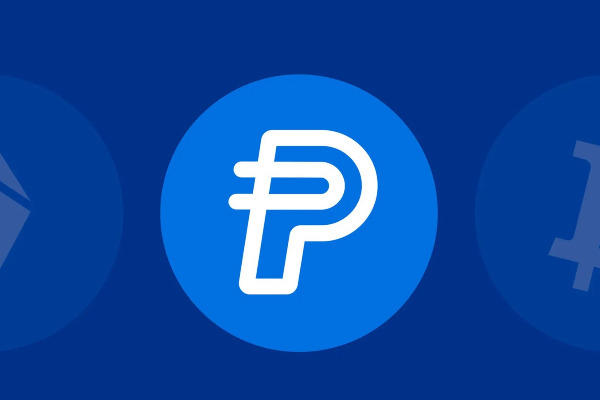
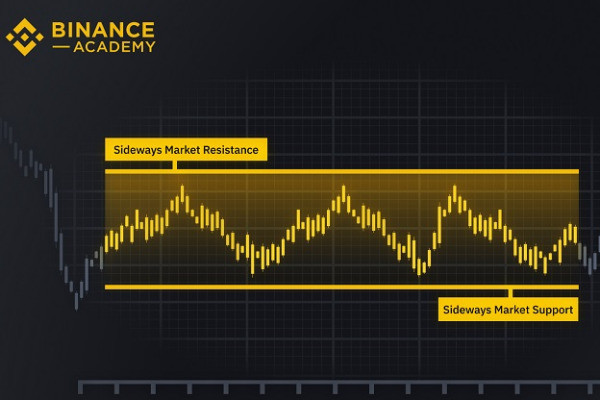
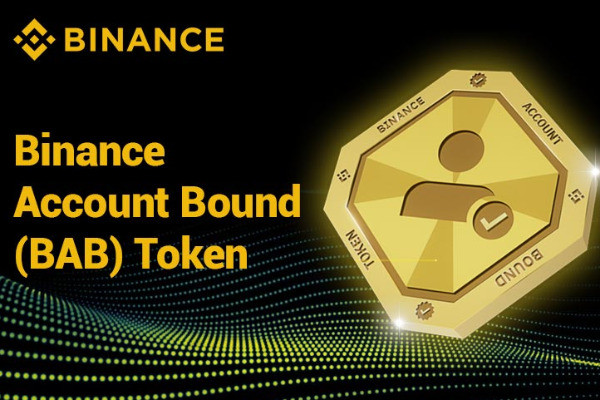
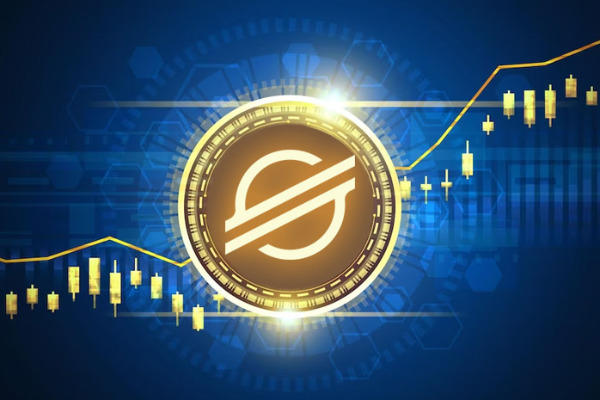
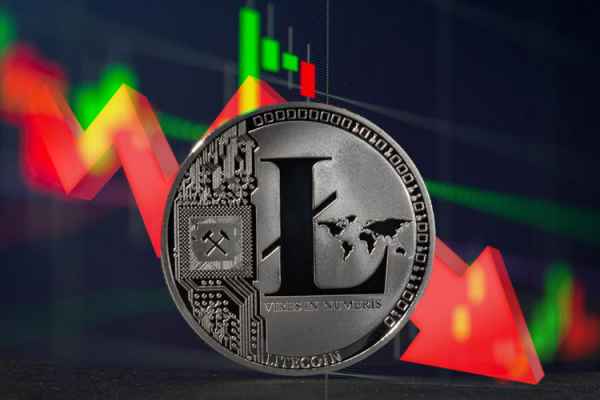

 Bitcoin
Bitcoin Ethereum
Ethereum Tether
Tether BNB
BNB Solana
Solana USDC
USDC XRP
XRP Dogecoin
Dogecoin Toncoin
Toncoin Cardano
Cardano
5 Comments
Hasan
Jun 10 2023
Have you considered the potential negative impact of blockchain technology on the job market? As blockchain, also known as Distributed Ledger Technology (DLT), gains popularity, it offers fast and transparent transaction tracking. However, one consequence is the potential reduction of middle-skill administrative labor.
Traditionally, when money is transferred between banks, each institution undergoes a labor-intensive ledger reconciliation process to ensure accurate processing of funds. However, with the implementation of a blockchain system, this process could be eliminated, resulting in fewer job opportunities for middle-skilled administrative workers.
While blockchain offers efficiency and cost-saving benefits, it also raises concerns about the displacement of workers in certain roles. As automation and digitalization continue to shape various industries, it becomes crucial to explore ways to support and retrain workers affected by technological advancements.
In light of this, what are your thoughts on the potential impact of blockchain technology on the job market? Do you believe there are opportunities for workers to adapt and transition to new roles within the evolving landscape of technology and finance?
Hocky
Jul 9 2023
@Hasan: In my opinion, Blockchain technology has the potential to shake up the job market, especially in the technology and finance sectors. It might lead to some jobs being replaced, but it also opens up new opportunities for workers to transition into different roles.
With blockchain streamlining processes and removing the need for intermediaries, some traditional job roles like middlemen in clearinghouses or payment processors could be at risk. But hey, don't panic! Blockchain also creates new jobs that require specialized skills.
As blockchain becomes more mainstream, there will be a demand for experts in blockchain development, security, and governance. Think blockchain developers, smart contract programmers, cybersecurity whizzes, and project managers who know their way around blockchain. It's a chance for folks to jump into exciting new fields.
Blockchain also encourages decentralization and empowers entrepreneurship. People can create their own businesses and contribute to the growing blockchain ecosystem. It's a chance to be your own boss and make your mark.
To adapt to this evolving landscape, workers might need to learn new skills. Continuous learning, upskilling, and reskilling are the name of the game. Governments, educational institutions, and organizations should step up and provide training programs to support this transition.
Sure, blockchain might disrupt some jobs, but it also offers fresh opportunities. Embrace the potential, get the right skills, and be proactive in navigating this changing job market. The future is waiting for those willing to ride the blockchain wave!
Hector
Jul 7 2023
Hey, I just discovered that even Forex brokers are embracing blockchain technology for accepting cryptocurrency payments. It's pretty amazing how blockchain has made its way into the financial industry. I noticed that brokers like IC Markets, Exness, Admirals, OctaFX, Tickmill, ThinkMarkets, and FXTM are leading the way in being crypto-friendly.
I'm curious about the advantages of using blockchain technology as a payment option for deposits and withdrawals in the broker's platform. It seems like there could be benefits in terms of security, transparency, faster transactions, and lower costs. Plus, with the rising popularity of digital currencies, it makes sense for brokers to offer this alternative payment method. I'm just intrigued by how blockchain is changing the game in the Forex industry.
If anyone has insights on this, I'd love to hear more! Thanks!
Verra
Jul 8 2023
@Hector: You're absolutely right! The integration of blockchain technology in the Forex industry is indeed fascinating. Embracing cryptocurrencies as a payment option offers several advantages for brokers and traders alike.